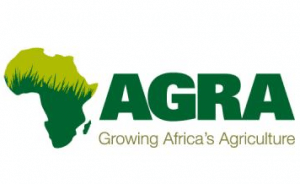AGRA implements project to make Planting for Food and Jobs successful
 Food production and security is expected to improve significantly as Ghana’s development partners embrace the Government’s Planting for Food and Jobs (PfFJs) programme.
Food production and security is expected to improve significantly as Ghana’s development partners embrace the Government’s Planting for Food and Jobs (PfFJs) programme.
The introduction and implementation of a new project titled: “Ghana Extension Systems Strengthening Project (GESSiP),” an initiative of the Alliance for Green Revolution in Africa (AGRA), would strengthen extension services to support the success of the PfFJs programme.
AGRA is an intentional Non-Governmental Organisation helping to fulfil the vision that Africa could feed her people.
Being implemented in 28 districts and municipalities in the Brong-Ahafo and Northern regions, the three-year project seeks to catalyse and sustain an inclusive agricultural transformation to increase incomes and improve food security.
The Hunger Project (THP), a global non-profit strategic organisation, Catholic Relief Services and Farmerline, also NGOs is collaborating with the Extension Directorate of the Ministry of Food and Agriculture (MoFA) to implement the project, expected to increase staple crop productivity for at least 672,000 smallholder farmers by strengthening the extension system in the two regions.
Speaking at a stakeholders’ engagement workshop and the Brong-Ahafo Regional launch of the GESSiP on Thursday at Abesim, Mr Samuel Afrane, the Country Director of the THP, the project implementer in Brong-Ahafo said 336,000 smallholder farmers would receive training and extension services in the Region.
It was attended by input dealers, officials of the PfFJs, civil society actors, as well as district and municipal directors of Agriculture drawn from the 14 selected project implementation districts and municipalities in the Region.
Mr Afrane said the project, targeted to increase maize, soya beans and rice production, would train and engage 1,120 Village-Based Advisors (VBA) to reach out to the smallholder farmers, who would receive capacity building training and input packages and incentives to improve their farm work.
The GESSiP would use a two-tier approach based on AGRA’s VBA model to strengthen both public and private community-based extension services in the country.
Activities in either tiers would be carried out simultaneously with strategic planning so that interconnected activities could precede and inform actions in the other tier.
Dr Owusu Afriyie-Akoto, the Minister of Food and Agriculture, said in a speech read on his behalf, that one million farmers were targeted to benefit from subsidised fertilizer in the PfFJs programme.
He lauded the implementation of the GESSiP project as it would augment efforts of the Government to achieve desirable results in the PfFJs programme.
He tasked the MoFA Directors at the project implementation areas to ensure that it would become successful.
Mr Evans Opoku-Bobie, the Brong-Ahafo Regional Minister, said the PfFJs programme made significant impact in food production last year and pledged the Regional Coordinating Council’s commitment to ensuring the successful implementation of the project.
Source: GNA
